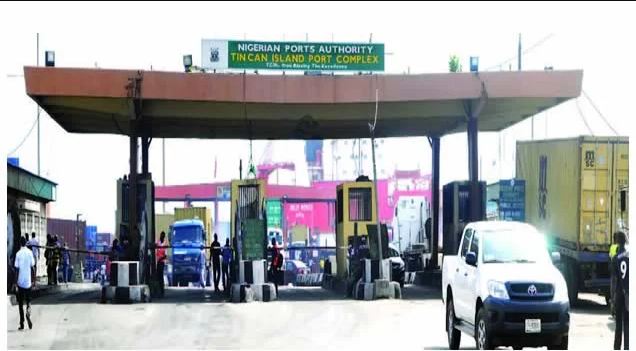The Tincan Island Port Customs Command, Lagos, South west said it achieved up to 89.43 per cent of its 2023 revenue target as it pursues a more challenging revenue target of N1.13 trillion in the year 2024
By Esther Oluku
The Customs Area Controller (CAC) of the Tin Can Island Port Command, Comptroller Dera Nnadi, (mni), said the management of the Nigeria Customs Service (NCS) led by Bashir Wale Adeniyi has given a target of one trillion, one hundred and thirty billion, seven hundred and sixty-eight million, fifty one thousand, eight hundred and eighty-one naira, twenty nine Kobo. (N1,130,768,051,881.29) to the command for the year 2024.
According to Comptroller Nnadi, the 2024 revenue target of his command represents a rise from the revenue target of 2023 which stood at eight hundred and one billion, one hundred and forty-two million, two hundred and ninety seven thousand, four hundred and seven naira, sixty-six kobo (N801,142,297,407.66).
Comptroller Nnadi stated that the Command was able to achieve up to 89.43 per cent of last year’s yearly target as it looks to prioritize efficiency to ensure that compliant business community operating in the command take delivery of their consignment within record time.
While declaring 2024 as “the year of stakeholders”, the TCIP Customs boss noted that the Command will encourage practices which can enable stakeholders thrive such as reduced cargo dwell time, increased accountability of officers among others.
Other incentives for stakeholders would include the optimisation of the twenty-four hours port operation drive to tighten the noose around service delivery so that freight forwarders can easily clear their cargoes on any day or time of the week.
Speaking on improved Accountability of custom officers, he said: “I have told my officers that I will no longer be laming them. Every declaration made by a stakeholder must be released by an officer but if that supply chain is being intercepted, that officer will have to answer first. So we are giving a window to allow the stakeholders to breathe.”
He noted that challenge has not always been the duty payable by the freight forwarder but the accrual of demurrage charges noting that in this fiscal year, the service will do everything within its power to cut down on cargo dwell time.
“The importer is not afraid to comply if you give them service delivery. It is better for him to pay his duty and get his cargo in 24 hours or 48 hours maximum than for him to stay inside the port in two weeks paying demurrage. I have already mapped out strategies to make sure that no freight forwarder spends longer time than necessary and accumulate undue demurrage.”




